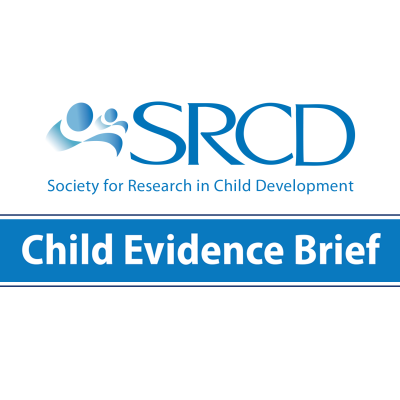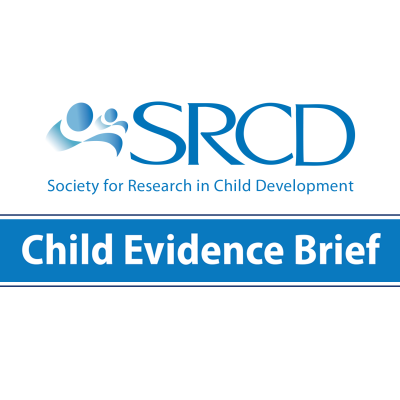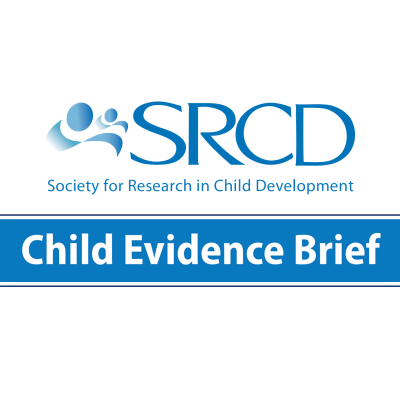Child Development in Developing Countries
Early childhood is critical because it is a time for rapid gains in physical, cognitive, and socioemotional development. Although 560 million children under the age of five live in the developing world, much of what we know about child development comes from studies done in the developed world. Research on child development in developing countries is central to informing our broader understanding of child development and to improving the lives of children in developing countries through evidence-based policies and practices.
What Does The Research Tell Us?
A special section of studies published in the January/ February 2012 issue of the journal Child Development focuses on children in developing countries. In these studies, researchers use data from the third wave of the Multiple Indicator Cluster Survey (MICS) in 28 developing countries. The MICS, a nationally representative and internationally comparable survey, designed by UNICEF, was created to assess trends, measure disparities, and support evidence-based policy formulation. The studies in this special section look at different aspects of child development in relation to other key indicators of country-level development, including life expectancy, education, and gross domestic product (GDP), summarized as the Human Development Index (HDI). 1
Infant and Young Child Feeding Practices
The World Health Organization recommends exclusive breastfeeding for the first 6 months because it has significant effects on the reduction of mortality from two contributors to under-5 death: diarrhea and pneumonia. A study on infant and young child feeding practices in developing countries shows that, while breastfeeding rates varied among countries, only 25% of all 0- to 5-month-olds were exclusively breastfed. Breastfeeding rates were especially low in countries where indicators of life expectancy, education, and GDP were higher. Also, fewer than half of all mothers reported that their young child had received enough fluid or food intake during a recent illness. This finding is concerning, as optimal fluid restoration and feeding during illness are critical for child health and survival.2
Caregiving
Early childhood is a time when children first make sense of the physical world, forge social bonds, and read basic human emotions. Parents usually play a major role in leading children through these developmental “firsts.” In a study on caregiving practices in developing countries, researchers found that mothers in every country engaged in more socioemotional caregiving (like playing with children and singing songs to them) than cognitive caregiving (like reading to children, which only 25% of caregivers reported having done in the past 3 days). Notably, 21% of parents also reported leaving a child alone or in the care of a young sibling within the past week, which is a risk factor for harm and injury. Overall, caregivers from countries with higher GDPs reported higher rates of positive caregiving.3
Housing Quality and Learning Materials in the Home
Conditions within the home are instrumental in children’s health and functioning and extend or limit what parents can do to protect children and foster their development. A study in developing countries found that aspects of housing quality, material resources, and access to formal learning resources were positively tied to country-level HDI. Homes in lower HDI countries were much less likely to have piped water, unshared improved toilet facilities, electricity, and vehicles for transportation. They were also far less likely to have books in the home; in low-income countries, only 2% of homes had 10 or more children’s books.4
Countries Included in These Studies
Albania • Bangladesh • Belarus • Belize • Bosnia and Herzegovina • Central African Republic • Côte d’Ivoire • Gambia • Ghana • Guinea-Bissau • Iraq • Jamaica • Kazakhstan • Kyrgyzstan • Macedonia • Mongolia • Montenegro • Serbia • Sierra Leone • Somalia • Syrian Arab Republic • Tajikistan • Thailand • Togo • Ukraine • Uzbekistan • Vietnam • Yemen
Childrearing Discipline
Because most physical abuse takes place within the context of physical punishment, a growing body of research identifies harsh physical punishment as a risk factor in children’s development. In a study of childrearing discipline in developing countries, researchers asked caregivers to report how often in the past month they or someone else in their household had used different behaviors to discipline a young child. Caregivers were most likely to report using nonviolent behaviors to discipline a child (like explaining to the child why something he/she did was wrong), but also likely to use psychological aggression (like calling the child names) and/or physical punishment (like spanking or slapping). Sixteen percent of caregivers reported using severe physical punishment with a child (like beating the child with an implement). Country-level education was related to some discipline behaviors, suggesting that educating parents may influence this aspect of parenting.5
Estimate of Risk for Young Children in Developing Countries
The UN Convention on the Rights of the Child (CRC) ensures—among other things—children’s rights to survival, protection, and development. It was the first legally binding international convention to comprehensively incorporate civil, cultural, economic, political, and social rights to the child. All 28 countries (except Somalia) examined in this set of studies on child development in developing countries have signed the CRC. Taking all of the findings into account from across this set of studies (on indicators of nutrition, prevention of disease, caregiving, exposure to inadequate housing, safety, and physical punishment), researchers estimate that the rights to survival, protection, and development are at risk for one-quarter of young children in developing countries. These studies provide a great deal of information that can be used to inform policy and practice and improve the lives of children currently at risk.6
Implications for Policy and Practice
Findings from the studies described in this brief suggest that programs that support parental education and/or family income, like conditional cash transfer programs, might be one area for intervention. Another area for intervention involves programs that support positive caregiving practices in the home. Such programs might focus on:
- Supporting breastfeeding and nutritional practices
- Enhancing cognitive stimulation
- Reducing harsh discipline practices
There is an emerging evidence base for both types of programs. It will be important to identify specific approaches that are effective in supporting the development of young children in the developing world.
References
All of the papers cited in this brief are published in Child Development (2012), Volume 83, Issue 1 and include:
1 Bornstein, M.H., Britto, P.R., Nonoyama-Tarumi, Y., Ota, Y., Petrovic, O., & Putnick, D.L. Child development in developing countries: Introduction and methods, 16-31.
2 Arabi, M., Frongillo, E.A., Avula, R., & Mangasaryan, N. Infant and young child feeding in developing countries, 32-45.
3 Bornstein, M.H., & Putnick, D.L. Cognitive and socioemotional caregiving in developing countries, 46-61.
4 Bradley, R.H., & Putnick, D.L. Housing quality and access to material and learning resources within the home environment in developing countries, 76-91.
5 Lansford, J.E., & Deater-Deckard, K. Childrearing discipline and violence in developing countries, 62-75.
6 Britto, P.R., and Ulkuer, N. Child development in developing countries: Child rights and policy implications, 92-103.


